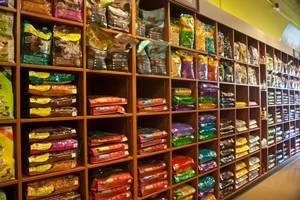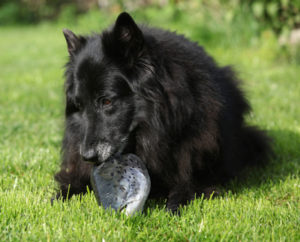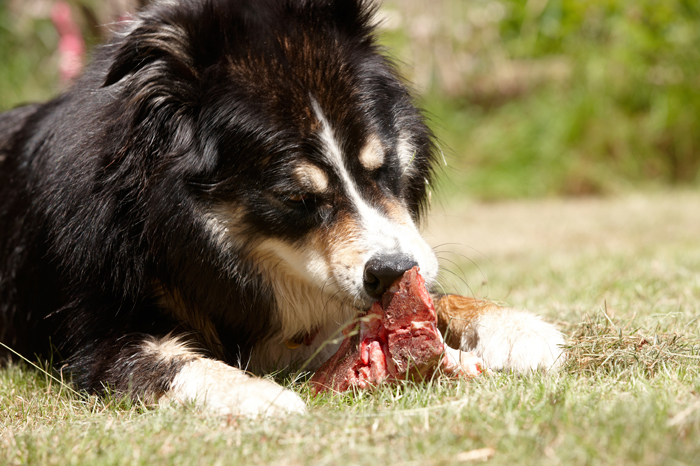Limiting and/or changing your canine’s protein sources can help with food allergies.

Currently, there are several trends vying for popularity on the dog food shelf at your local pet store, from grain- and gluten-free, to ancestral diets that infuse freeze-dried raw meat into kibble to a growing range of single-protein offerings.
However, single protein food choices—also known as limited ingredient diets (LIDS)—are more than simply a fad; they are a conscientious attempt by pet food manufacturers to help pet owners deal with food-related allergies that can plague some dogs.
In fact, food allergies in dogs rank as the third most common type of allergic reaction pets suffer from after fleas and reactions to inhalants such as pollen, dust and molds.
Just like with people, some dogs are born with allergies, while others can develop an allergic reaction at any time in their lives. According to veterinarian Melissa Brookshire, who consults for Merrick Pet Care, a food allergy is “an inappropriate immune reaction to a protein component in the pet food.”
In pets as in people, the immune system produces substances known as antibodies. These antibodies protect from unwanted foreign bodies that may potentially cause certain illnesses or infections. In terms of food, an allergic reaction occurs when the immune system makes antibodies that identify a protein as harmful, even though it isn’t.

“It does not necessarily mean that it’s the animal protein in the food—the meat, chicken or—because everything has protein except for fats, oils, vitamins and minerals,” Brookshire explained. “For example, peas in a pet food are not in the recipe as a protein source, but they do contain protein. So a pet could have a reaction to the peas or the rice or apples in the pet food recipe.
“However, the animal protein component is the first place to look because animal proteins are key ingredients in pet food recipes and thus contain the biggest percentage of proteins,” she added.
It’s easy to identify the main protein sources in a particular can or bag of pet food because they are always listed in the first four ingredients on the label. Therefore, having a single source of animal protein in a recipe makes it very easy for to avoid a protein that might be causing an allergic reaction in your pet.
It’s interesting to note that one of the main protein culprits causing allergic reactions in dogs is chicken. So along with the growing popularity in other proteins such as lamb and turkey, pet food manufacturers are offering more exotic proteins such as duck, bison, fish, venison, rabbit and kangaroo.
The type of protein a pet is most exposed to it most likely to the culprit if an allergy occurs, according to pet nutritionist Keith Hansen. And because food allergies can occur at any time in a dog’s life, it makes sense to change the actual protein on a random basis as this would help reduce the allergen effect of a specific protein, making it less likely for an allergy to occur.
Eliminating a food allergy takes patience because it’s a process of elimination. But nutritionists state that once you have read the label on your pet’s current’ food, start by selecting a limited ingredient diet that contains a protein that is not included in the current food.
When shopping in the pet food aisle, Merrick Pet Care has a selection of both dry and canned single-protein options that are also grain- and gluten-free. Wellness, Natural Balance, Nature’s Variety and Acana also have single-protein or limited-ingredient options featuring exotic proteins.
About the Author: Sandy Robins is the 2013 winner of the “Excellence in Journalism and Outstanding Contribution to the Pet Industry Award.” Her work appears on many of the country’s leading pet platforms, such as MSNBC.com, MSN.com and TODAYShow.com. She is a regular contributor and columnist in multiple national and international publications, including Cat Fancy, as well as the author of the award-winning books “Fabulous Felines: Health and Beauty Secrets for the Pampered Cat” and “For The Love of Cats.” Learn more about Sandy on her website or Facebook page. #welovecats






